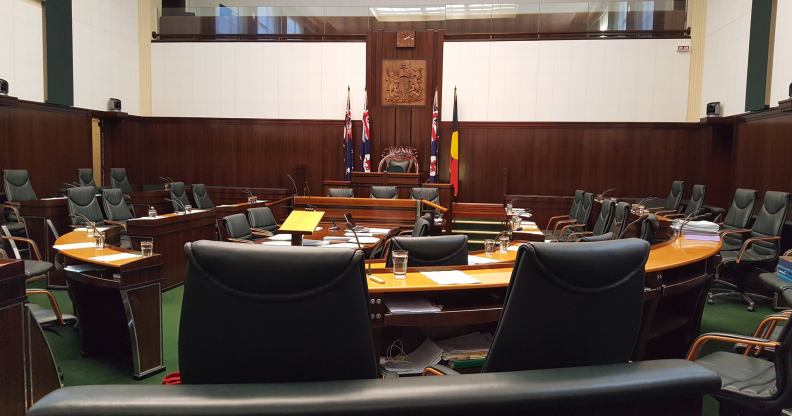Sweeping gender law reforms have made trans lives easier without impacting cis people, Tasmanian government says

The Tasmanian House of Assembly passed the reforms
Sweeping changes made to Tasmania’s gender recognition laws last year have made trans lives easier without creating any unintended consequences for cisgender people, according to the country’s Law Reform Institute.
Last year, the Tasmanian government passed new laws which made gender optional on birth certificates and allowed trans people to legally identify as their correct gender without having had gender confirmation surgery.
The laws were backed at the time by Labour, the Green Party and the House of Assembly Speaker Sue Hickey, and some government officials hinted that they could try to repeal them at a later date.
The Tasmania Law Reform Institute was asked by the government to examine the new laws, and – after many months – they have found that gender recognition laws have had no adverse effect on cis people, according to ABC News.
Tasmania gender recognition laws ‘won’t affect’ the daily lives of cisgender people.
Dylan Richards, a research officer with the body, said the laws had made the lives of trans and non-binary Tasmanians easier without having any unintended consequences for other groups.
“While there are some pretty significant changes, which will affect some members of our community in positive ways, for most people in Tasmania it won’t affect their daily lives,” he said.
“We’re hoping that other jurisdictions might look at what’s happened in Tasmania and our report and see that these kids of changes aren’t necessarily all that scary, and that they can be confident they can take similar changes themselves,” he added.
While there are some pretty significant changes, which will affect some members of our community in positive ways, for most people in Tasmania it won’t affect their daily lives.
The Law Reform Institute’s report also recommended that Tasmania introduce new laws that would make it easier for intersex people to claim compensation for surgical procedures that were conducted without their consent.
New laws must help protect the intersex community.
“We found that surgical interventions on intersex children can have significant long term consequences that last into adulthood,” Richards said.
“Given the ongoing concern from the intersex community about this kind of surgery, we recommend stronger, clearer guidance around consent to medical treatment.”
He said such laws would be “vital” to the intersex community, as many were put through traumatising, harmful and unnecessary surgeries when they were children without their consent.
Since the gender recognition laws were introduced last year, 63 Tasmanians have applied to change their gender on their birth certificates.
Additionally, 743 people have applied for birth certificates that do not have a gender marker.

